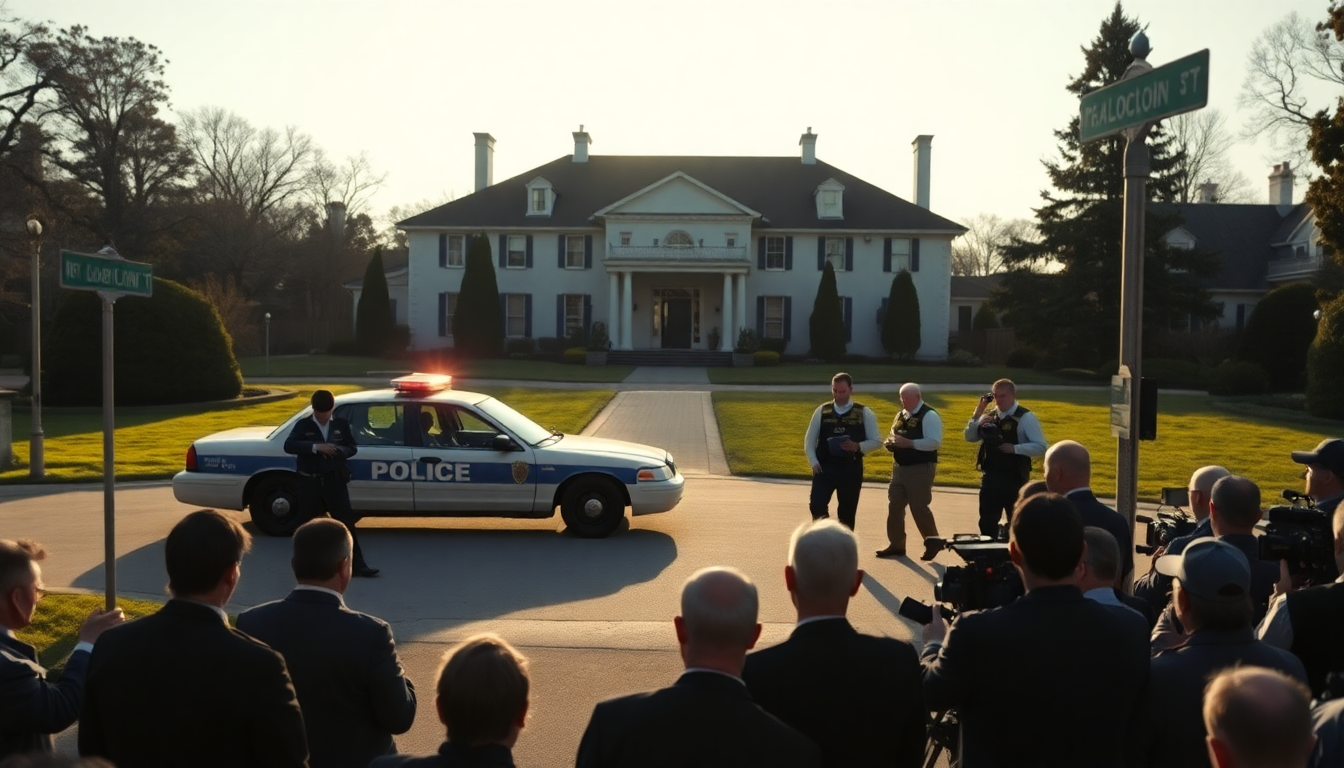Table of Contents
The recent FBI raid on former National Security Advisor John Bolton’s home has ignited a whirlwind of discussion about what really motivated this bold move and what it means for U.S. politics. In a recent interview, Vice President JD Vance stepped in to clarify the situation, insisting that the investigation isn’t politically motivated.
But what does this all mean? Let’s dive into the details of the raid, the broader context of the investigation, and what we might expect moving forward.
What Sparked the FBI Raid?
On a pivotal Friday, the FBI executed a search warrant at Bolton’s residence, raising eyebrows and fueling speculation about the reasons behind such a drastic action.
Vice President Vance tackled these questions directly during his interview on NBC’s “Meet the Press,” emphasizing that this investigation is part of a larger inquiry, rather than a reaction to Bolton’s past criticisms of President Trump. Could it really be that straightforward? Vance’s comments aim to ease concerns about political bias, suggesting that the FBI’s actions are grounded in legal obligations rather than partisan interests.
Vance explained that the investigation focuses on potential violations related to classified documents, a hot-button issue in American politics. He pointed out that while concerns about classified materials are indeed valid, the investigation delves into broader issues regarding Bolton’s actions during his time in office.
This approach suggests that law enforcement is taking a careful and methodical stance, prioritizing the rule of law over political influences.
Interestingly, the raid may be seen as an extension of an investigation that had previously lost steam during the Biden administration.
Sources indicate that the inquiry into Bolton was initiated years ago but was stalled due to alleged political motivations. This raises an important question: How do political affiliations impact ongoing investigations and the integrity of justice?
Political Reactions and the Bigger Picture
The political landscape surrounding Bolton has changed dramatically since his time as National Security Advisor. Once a close ally to Trump, Bolton has now become a vocal critic, especially regarding Trump’s handling of classified information—a matter that has led to legal troubles for the former president. With Bolton now under scrutiny, the implications of this investigation stretch beyond his personal circumstances and into the realm of political accountability. Isn’t it fascinating how alliances can shift so dramatically in politics?
Vance’s remarks underscore a crucial aspect of this investigation: the expectation that law enforcement operates free from political influence. He stressed the importance of determining whether Bolton committed any crimes against the American people, emphasizing a commitment to legal integrity. If evidence of wrongdoing arises, it’s vital that the legal process unfolds transparently, maintaining accountability, regardless of political ties.
Moreover, this incident might set a new standard for how former officials are treated when they turn into critics of their own administration. The delicate balance between political critique and legal scrutiny is at play here, and this case could redefine future interactions between law enforcement and political figures.
What Lies Ahead: Implications for Future Investigations
The fallout from the FBI raid on Bolton’s home is likely to reverberate through both political and legal spheres in the months to come. As investigations continue, scrutiny surrounding Bolton will only grow, possibly unveiling more details about his time in office and the actions of various political players.
Furthermore, this situation raises broader questions about how classified materials are handled and the responsibilities of those in power. As public discourse evolves, it’s crucial for lawmakers and legal authorities to clarify the laws surrounding classified information, ensuring transparency while maintaining national security.
In conclusion, the ongoing investigation into John Bolton serves as a significant touchpoint for discussions about political accountability and the integrity of law enforcement. As this situation unfolds, keeping an eye on how these dynamics develop will be essential to understanding future interactions between politics and the law. What changes might we see as a result?





